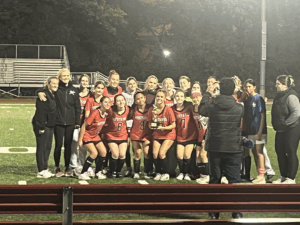Stepping back for a bigger picture of this historic month, it bears noting that in the domain of solutions to the grave crisis that has been caused by the U.S. presidential election, there are two pathways that need equal attention. The first is a short term one, the other a longer term remedy.
The first is obvious and immediate, to summon every resource available to block the worst outcomes that the election may trigger on a host of levels. These require, among other things, the instantaneous mobilization of forces identified in this week’s Financial Times under the headline, “Now NATO Might Cope With Less U.S. Help.” As for the longer term, there is a novel but important word contained in that essay that I spotted, and that word is “defragment.”
“Defragment” is currently used as a technical reference to operations with a computer. But it is used in the article in a quote attributed to the Italian defense minister referring to ways of adjusting current military practices to achieve a stronger European support for NATO.
So, permit me to go yet another step and use it here as a general social mandate, as a mid- to longer-term remedy for our current crisis.
At the most fundamental level, politics in America has evolved into a contest pitting the richest tiny percentage of the population fighting for its advantage against all the rest of us. It is about that, not about left versus right, or Democrats versus Republicans.
Among the tools this tiny richest class uses to level the playing field despite their incredible disadvantage in numbers, given that numbers as votes count in a democracy, is fragmentation of their opposition. We’ve become so accustomed to the framework in which they achieve this that we’re now effectively blind to the basics of what our elections are really about.
The real new political development globally of the last 50 years has been the renewed and strengthened alliance between the world’s autocratic and totalitarian leaders and predominantly western uber-wealthy financiers, oil barons and technocrats.
This was the important substance of the bonds developed between Putin of Russia and Trump of the U.S. dating all the way back to the 1980s. It involved the full-scale mobilization of the Russian disinformation and disruption mechanisms aimed at the U.S. elections starting in 2016 that led to Trump’s veritable coup then. It extended to this year’s election where it may be credited with being among the most important factors contributing to Trump’s re-election where online disinformation may have surpassed traditional media sources as the primary influencers in the election.
As important as traditional disinformation media sources like Fox News may have been, and the more subtle but critically influential political slants from the financier elite-controlled mainstream news media from the big three networks to the New York Times and Washington Post, it was the online factor, not the least being Elon Musk’s takeover of Twitter and its transformation into “X,” that were most decisive.
But if you notice, the relentless theme emanating out of all these sources is dominated by one idea: division, the induction of social-political fragmentation.
That’s the playbook, as old as the hills, as they say, for how a tiny minority can defeat an overwhelming majority. It is by dividing them. Divide and conquer!
For the more sophisticated experts in intelligence and counter-intelligence, in covert means of shaping the environment in which divisions are identified and exacerbated, the tools of psychology and epistemology are fundamental. The enemies of humanity and democracy have been working at this for eons, and in the modern world, the dominant influencer has been the philosophical, cultural and related trends subsumed under the category known generally as “postmodernism.”
This world view lionizes fragmentation as a good thing for the world. Pro
-U.S. intelligence operators have been suckered into buying in on grounds that even extreme diversity is inherently pro-democratic.
True, a healthy appreciation of differences among us is always a positive force. But pushing it to extremes opens the door to what we are now challenged to overcome if democracy is to survive. Asserting our commonality, we must now move to defragment.










